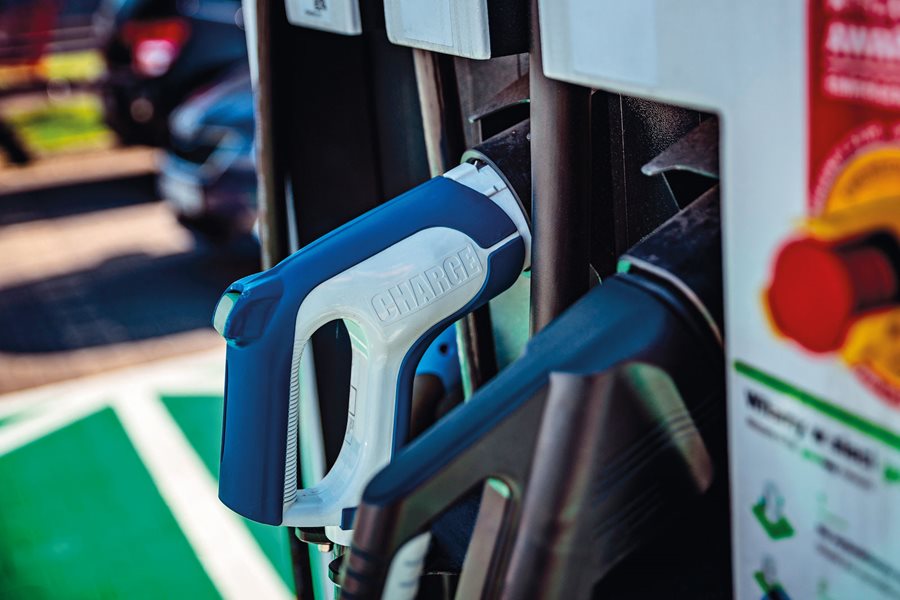🕒 Article read time: 6 minutes
2035 ban on petrol, diesel and hybrid vans unlikely to be achieved, FTA says

FTA has said that the new target to ban petrol, diesel and hybrid vehicles by 2035 is not only extremely ambitious, it is also unlikely to be achieved unless the government takes urgent action.
FTA made its response following the Prime Minister’s announcement at the UN climate conference COP26 that a ban on purchasing new petrol, diesel or hybrid cars and vans in the UK will be brought forward from 2040 to 2035, or earlier “if a faster transition is feasible”, subject to consultation. In a more recent interview with BBC Radio 5 Live, Transport Secretary Grant Shapps said the ban could come into place as early as 2032.
Christopher Snelling, FTA’s Head of UK Policy, said: “In the view of FTA, the 2035 target is very ambitious for the van market; unless the government takes urgent action to solve the challenges around power supply and the availability of electric vehicles, it will not be an achievable feat. FTA and its members fully support the government’s ambition to decarbonise the road transport industry – our Electric Vehicle Report shows that operators want to switch to electric – but we need to see urgent action from government to ensure the right infrastructure is in place and the market is ready.”
FTA believes that one of the key issues to resolve is that of power supply, as the depots and homes where vans are currently stationed do not have sufficient power supply to charge the vehicles. Snelling continued: “Logistics companies do not control or own this power supply infrastructure; FTA is calling on the government to share its strategy on how it plans to power the UK’s fleet of millions of vans. Until the issue of power supply is resolved, it is very unlikely – in the view of FTA – that 100% of new vans bought after 2035 will be electrically powered.”
To gain a clearer picture of the realities of introducing electric vehicles into commercial fleets, FTA commissioned an Electric Vehicle Report in 2019, which you can download from the below web address.
★www.fta.co.uk/evreport
Published On: 02/03/2020 12:35:48

Comments Section
If you are a Logistics UK member login to add comments.
ROAD HAULAGE RULES: CHANGES AHEAD
EU drivers’ hours rules applying to UK operators are about to be revised. Although the new rules are only expected to be officially adopted this summer, now is a good time to get acquainted with the changes as they will become applicable just 20 days after being published. Despite Brexit, these new rules will be mandatory in the UK as the transition period provides for status quo not only in terms of rights but also in terms of obligations. Hauliers will have to organise the work in such a way that drivers can return to their place of residence or to the UK once every four weeks – a rule we know is problematic for companies specialising in cultural tours. However, whilst drivers must be given this possibility, they are not obliged to make use of it.
The revised rules will also bring new flexibilities, eg, a possibility for international drivers to take two consecutive reduced weekly rest periods – with conditions attached. The revision also introduces a possibility, in exceptional circumstances and if road safety is not jeopardised, to exceed the maximum driving time by one or two hours for the driver to reach their place of residence or operational centre. Members should also expect a new version of the smart tachograph that will become mandatory for new vehicles from 2023 – we ensured that any slippage in the publication of the yet-to-be-written technical specifications automatically postpones the deadline for operators.
In the EU, vans above 2.5 tonnes used in international transport for hire-and-reward will be subject to operator licensing rules from spring 2022 and to drivers’ hours from July 2026. These changes will not automatically apply in the UK.
www.fta.co.uk/brexit
Latest articles
Legislation update - June 2025
Consultations which opened in June 2025
Read time: 5 minutes
View article
Generation Logistics Case Study
Naveed Rafeeq, Graduate Software Engineer - Unipart.
Read time: 2 minutes
View article
Drone Rangers to monitor UK infrastructure
The U.K. Civil Aviation Authority (CAA) has given authority to drone consulting firm Drone Major to conduct the U.K.’s first beyond visual line of sight (BVLOS) drone flights over the U.K.’s critical national infrastructure, initially some stretches of railway.
Read time: 2 minutes
View article